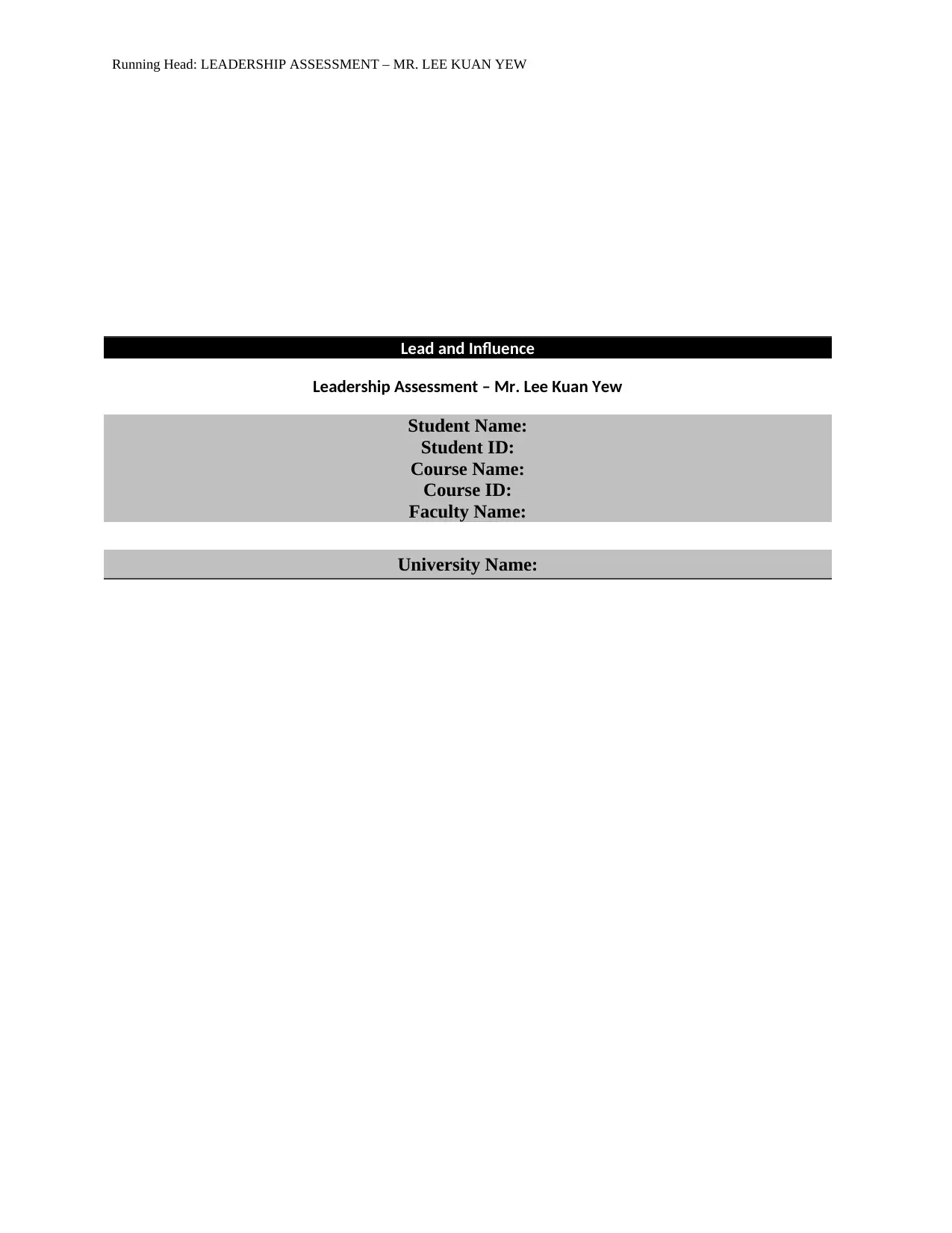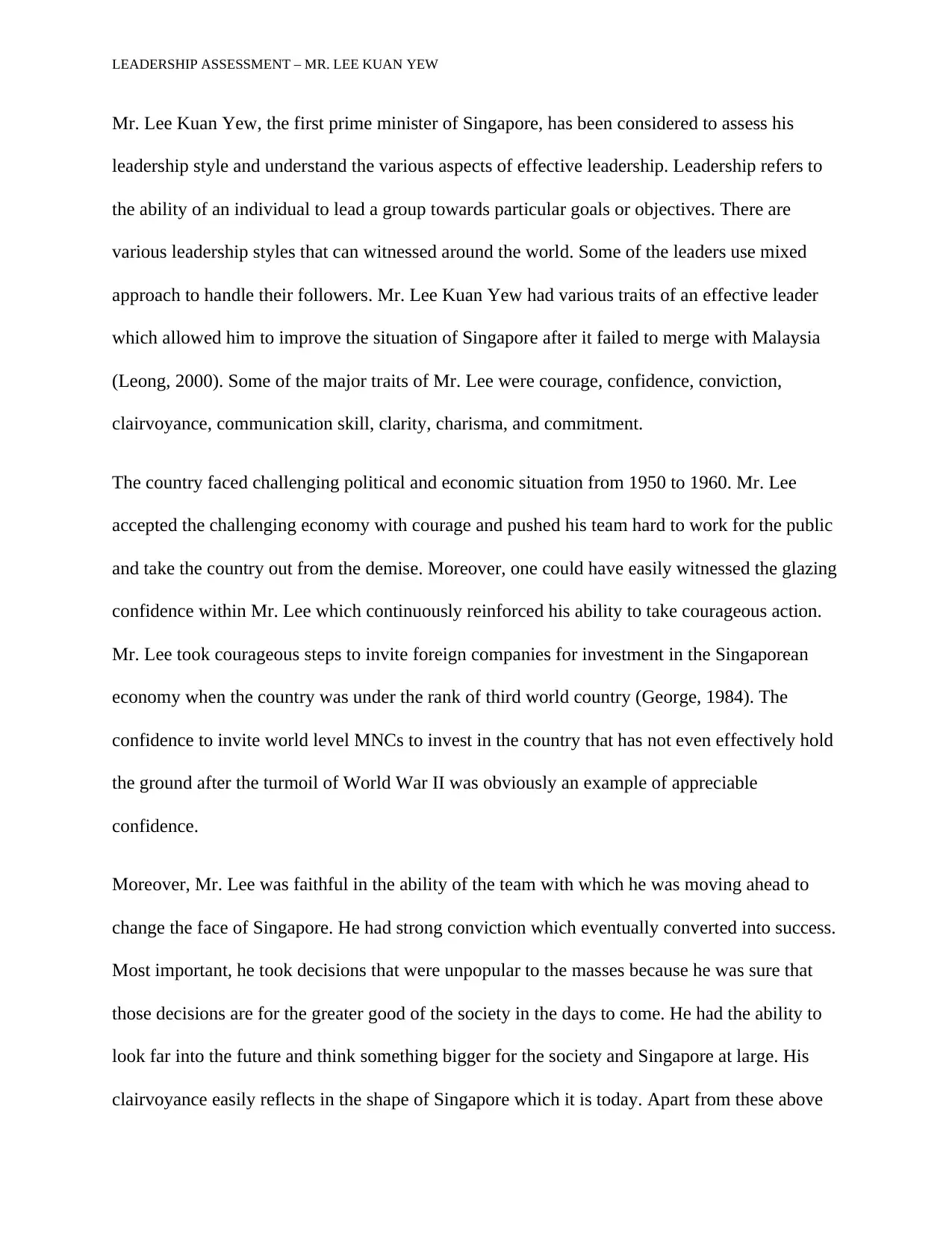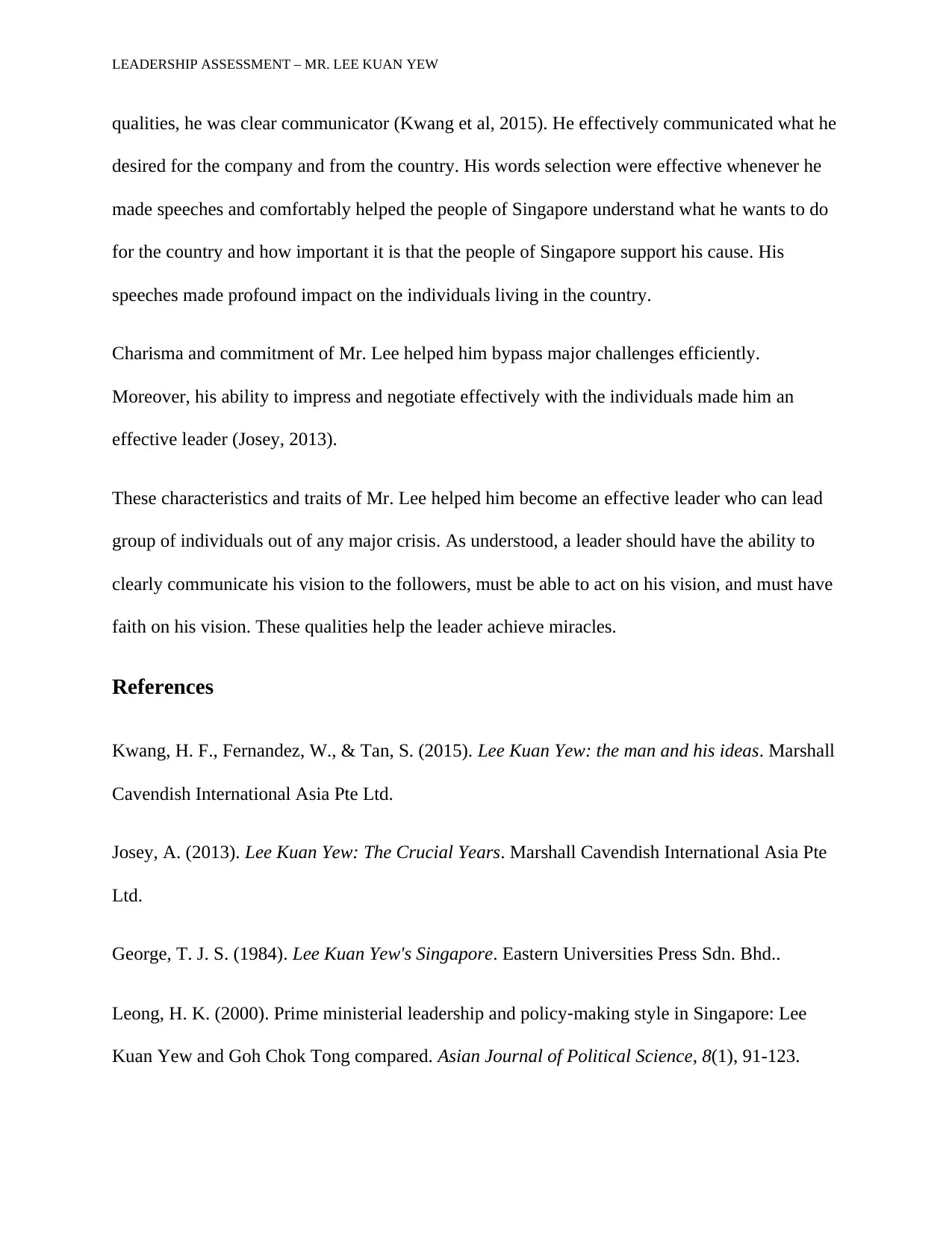Leadership Assessment: Lee Kuan Yew
VerifiedAdded on 2019/09/26
|3
|714
|483
Essay
AI Summary
This essay analyzes the leadership style of Lee Kuan Yew, the first Prime Minister of Singapore. It examines his key leadership traits, including courage, confidence, conviction, clairvoyance, communication skills, clarity, charisma, and commitment. The essay argues that these qualities enabled him to overcome significant political and economic challenges and transform Singapore. Specific examples are provided to illustrate how these traits manifested in his leadership, such as his decision to invite foreign investment despite Singapore's economic struggles. The essay concludes by highlighting the importance of effective communication, vision, and faith in achieving leadership success, drawing lessons from Lee Kuan Yew's experience.
1 out of 3










![[object Object]](/_next/static/media/star-bottom.7253800d.svg)